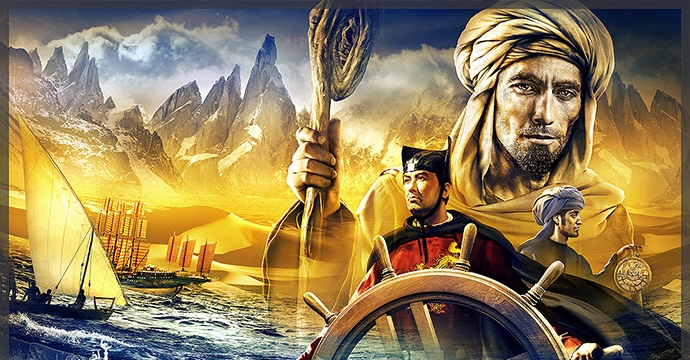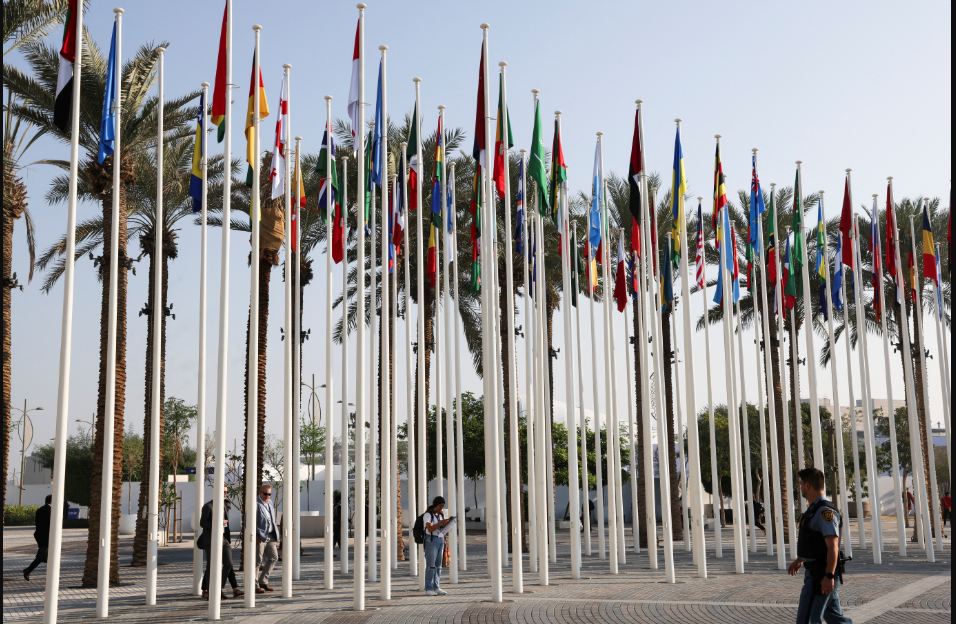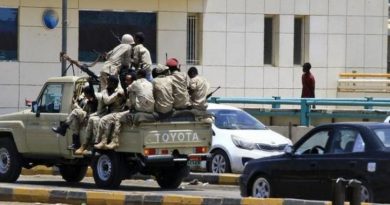PAST-GLORY: The Muslim Scientific Inventions that changed the World
by Muqaddas Firdous
Muslims were far more ahead when Europe was in dark ages.
Ever since Islam was born, Muslims have been leading the way. When we look at the history, we come to know about the richness of it.
When we study it we will know that Muslims were the one who were always busy in seeking knowledge.
Today when we look at West or Europe we tend to think that how advanced they are in different fields.
Muslims were far more ahead when Europe was in dark ages. They were kept in confusion and ignorance by their priests and Churches and were made to think that Muslims are ignorant and these arrogant people used to consider us as infidels.
The learning and knowledge capitals of the world were cities governed by Muslims for example Baghdad, Cairo, Damascus, Cordova (Andalusia) etc.
Today when we talk about universities and look at Oxford, Stanford or Yale like universities where we dream of studying but we should know it were the Muslims who introduced university to the world.
The oldest and still functional university is in Fez, Morocco known by the name of University of Quarouiyine (Karueein) founded in 859 C.E. by Fatima al Fihri.
Camera
We see the extensive use of cameras in today’s world, we see cameras on the street, in our homes, in our pockets on our Smartphone.
We talk about megapixels. But this camera was invented by Ibn al Haytham who refused the Greek concept that an invisible beam of light comes out of our eyes and with its help we can see.
Instead he used a pinhole to demonstrate his point that is the light reflects of an object and enters our eyes and we see. He also discovered the camera obscure phenomenon that is how we see images upright due to the connection between optic nerve and brain.
Surgery and Surgical Tools
Surgery and surgical tools were also invented by Muslims in 10th century. It was Abul Qasim Khalaf ibn al-Abbad al-Zahrawi (Abulcasis), in his medical encyclopedia al-Tadrif, there is a monograph on Surgery. He also staged over 200 surgical tools which later became a revolutionary concept. It was also the first ever monograph on surgical tools.
Flying Machine
About Flying machine, Wright Brothers comes to our mind. But we should know that it was a Muslim by the name of Abbas ibn Firnas who was the one who first attempted to fly.
He jumped from a minaret of the grand mosque with a loose cloak stiffed with wooden struts but was not able to fly but his fall was slowed by it. Hence it is said that it was the first parachute. But he did not give up and in 875 C.E. he tried again and this time with the structure of silk and eagle feather he jumped from a mountain and flew for some time before crash landing.
It is said that if he would have given his apparatus a tail he would have become successful. He became the inspiration for the Italian artist Leonardo da Vinci 600 years later.
Coffee
Coffee has an interesting background story. An Arab named Khalid was with his goats on the southern Ethiopian slopes where he found out that his goats became lively after eating a particular berry.
He took the berries and boiled them and gave it the name of “al-qahwa”. Then it was exported to Yemen where Sufis started drinking it to remain awake all night for their rituals. Then in 15th century it reached Makkah and then Turkey and from where in 1645 it made its way to Venice. It arrived in England and was brought by Pasqua Rosee, who was a Turk in 1650. He was the one who opened the first coffee shop in London at Lombard Street and the English called it Coffee.
Chemistry
Jabir Ibn Hayyan is one of the names famous in the domain of Chemistry. He converted alchemy into Chemistry. He was the founder of modern Chemistry.
He was the one who emphasized on systematic experimentation. He invented the method of distillation that is separating the liquids through differences in their boiling points. He also invented different processes and apparatus that are still used today and they are liquefaction, crystallization, distillation, purification, oxidization, evaporation and filtration.
He is also the inventor of alembic still which is used in the creation of perfumes and alcoholic sprits. Discovery of sulphuric and nitric acid is credited to him.
Earth’s Sphericity
Earth’s Sphericity, it was Ibn Hazm in the 9th Century against all odds said that the sun is always vertical to a particular spot on earth and found his proof for the earth being sphere. He and his colleagues during Caliph Mamun’s reign predicted so accurately the earth’s circumference, that their calculations turned out to be less than 200 Km off. And later it was Abu Abd Allah Muhammad al-Idrisi al Qurtibi al Hasani al Sabti (al-Idrisi) who introduced it to the west.
Algebra
Algebra was derived from the title of a monograph Kitab al-Jabr Wa’l Mugabala by Muhammad ibn Musa Al- Khwarizmi in 9th century. It was a different perspective than of Greek’s which was based on geometry. He was the one to introduce the concepts of Algebraic Reduction and Balancing, Cancellation and Like Terms and raising a number to a power.
Calendar
Omar al Khayam developed a calendar which is more exact than Gregorian according to Sedillot who is the authority on the subject. He measured the length of the year as 365.24219858156 days while today it is 365.242190 days.
Blood Circulation
Blood circulatory system was discovered by Ibn al-Nafis Damishqi al-Misri 300 years before William Harvey re-discovered it.
It was he who gave a description of bronchi and interaction between human body’s vessels for air and blood. He also elaborated the function of the coronary arteries as feeding the cardiac muscle.
Abu Ali al-Husayn ibn Abdullah ibn Sina’s Book Al-Qanun fi al-tabib (Canon of Medicine) is the most famous single book in the history of medicine used by Medical Schools in East and West for 500 years.
“It was the first book dealing with evidence based medicine, experimental medicine, clinical trials, randomized controlled trials, efficacy tests, risk factor analysis and the idea of the syndrome in the diagnosis of specific disease”, said Toby Huff.
Chemical Equivalents
Chemical elements and equivalents is found in the work of Jabir Ibn Hayyan who gave the seeds of modern classification of elements into metals and non metals. The concept of chemical equivalents might be traced back to ibn Hayyan. He is also credited with the discovery of Hydrochloric Acid (HCl).
Algorithms
Now a days, we talk about computers, smartphones but have you ever wondered, what is the basic of all this, Algorithms. It comes from Muhammad ibn Musa Al- Khwarizmi’s Latin name ‘algoritmi’. As we know without algorithm there wouldn’t be any computers.
Other Inventions
These are only some of the discoveries and inventions made by Muslims , the list goes on and on like:
• Ethanol, Nitric Acid, Aqua Regia, Petroleum Distillation (Muhammad ibn Zakariya al Razi)
• Food Chains (Al-Jahiz)
• Hard Soap, Glycerin from Olive Oil (Al-Jahiz)
• Observatory and Research Institute (Al-Shammisiyya Observatory in Baghdad)
• Syringe was invented by Ammar ibn Ali-Mawsili in 9th century. He used a hallow glass tube, which he used as a suction to remove cataracts from patients eyes.
• Binomial Theorem (1st formulation by Al Karaji quoted by Al-Samaw’al)
• Magnifying Glass and Convex Lenses (Ibn al-Haytham)
• Blood Measurement Device (Al-Jazari)
• Glass manufacturing (Abbas ibn Firnas)
• Mental institute (Ahmad ibn Tulun )
• Metabolism (Ibn al-Nafees)
• Inhalation anasthesia (Al-Zahrawi and Ibn Zuhr)
Conclusion
Muslims have been asked to ponder and contemplate on the surroundings in the Holy Book Quran, so that spirit of enquiry led to the investigation of scientific methods and ultimately the evolution of modern science.
And it were the Arabs who introduced this spirit and methods of investigation, experiment, observation, measurement, the development of mathematics to Europe.
Unfortunately, modern Muslims have disgraced their ancestors. Look at the cities which were once the hubs of knowledge to the world, now spoiled to ruins.
Muslims should introspect and contemplate that who they are, what were their contributions, what is their image as Muslims, indeed they are the followers of the religion which is complete and that religion is based on knowledge.
So, Muslims should be leading the way. It is just a matter of taking the first step. They must change their attitude and involve in attaining knowledge.
Muqqadas Firdous holds Master’s Degree in Business and PG Diploma in Education Management. He tweets under @muqqadasfirdous.
Featured Image taken from 1001Inventions.com.



